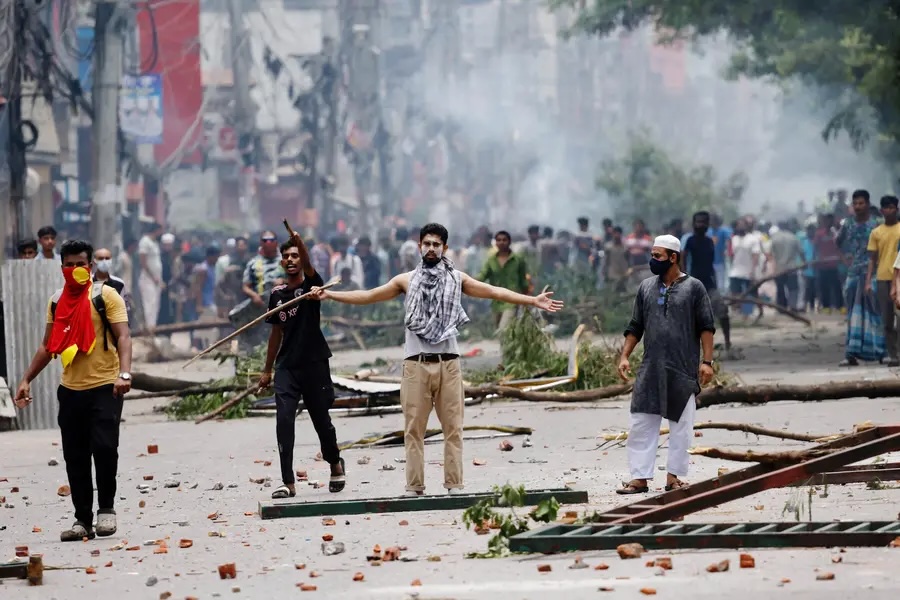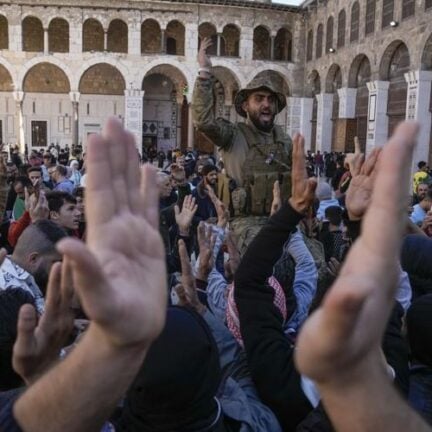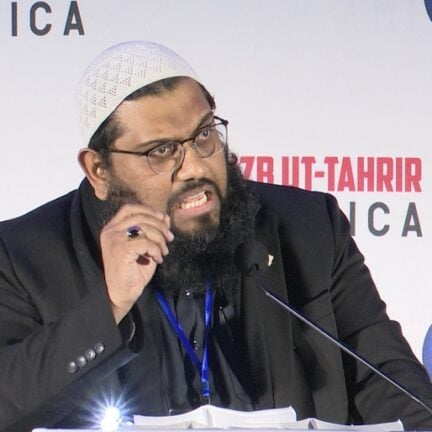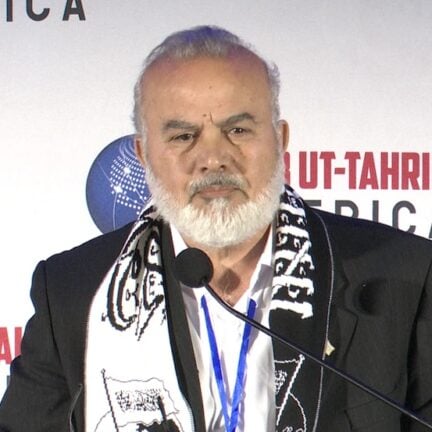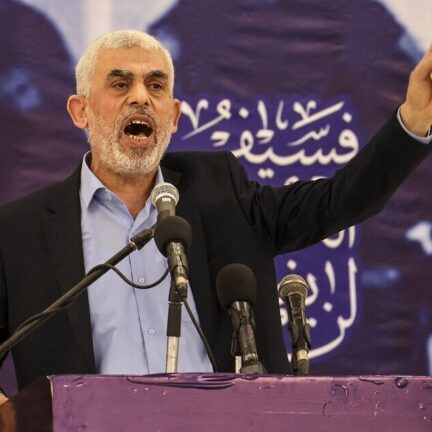Question:
On 5 August 2024, the resignation of the Prime Minister of Bangladesh was announced. She fled the country after protests, over the quota system for jobs in the public sector, since the beginning of last month. The protests turned bloody, since the middle of last month, as followers of the ruling party clashed with the protesters. The army announced its assumption of power, and the country’s president announced the dissolution of parliament, with the appointment of an interim government. Were the protests planned? Was the army’s intervention through agreement? Is it related to the international conflict over the country?
Answer:
To clarify the answer to the above questions, we will review the following matters:
1- Bangladesh is an Islamic country. During the early years of the Thirteenth Century CE, Muslims conquered Bengal during the campaign of Muhammad Ghori in late 1192 CE, which extended across northern India. Bangladesh, the eighth most populous country in the world, with a population of about 171 million, is located in South Asia, and is bordered by Myanmar and India. More than 90% of the population is Muslim, and the official religion of the country is Islam. As part of the policy of divide and rule followed by Britain, the Awami League, which was based in East Pakistan, and headed by Sheikh Mujibur Rahman, the British agent, and supported by the British, declared its independence from Pakistan, after the war with Pakistan in 1971.
2- The Prime Minister of Bangladesh, Sheikh Hasina, inherited agency to Britain, the country’s former colonialist ruler, from her father, the former Prime Minister of Bangladesh, Sheikh Mujibur Rahman, the leader of the Awami League, who was executed with his family in 1975, by officers who staged a coup against him. Sheikh Hasina survived because she was abroad during the coup. She lived in Britain, until she was allowed to return to her country, and engage in political activity in 1981. She became the head of the government for the first time between 1996 and 2001. Then she has assumed government since 2009 until today. She was accused of rigging the elections that took place at the beginning of this year, as she obtained an overwhelming majority in the parliament formed by her party, the Awami League, where the number of successful candidates reached 233 members out of 300 members of the total assembly, in addition to 9 members from a party allied with her party. The other parties rejected the results, and considered them sham elections, and America also criticized them. However, Hasina’s regime officially acknowledged her victory!
3- During her rule, Hasina worked to strike at American agents, and to concentrate British influence in the army, political circles, the judiciary, and other centers of power. She was competing with the leader of the opposition party, the head of the Bangladesh Nationalist Party, Khaleda Zia, who inherited the agency for America from her husband, Lieutenant General Ziaur Rahman, who came to power in 1977, and was assassinated in 1981 by British agents. His wife, Khaleda Zia, took over the government for two terms between 1991 and 1996, and between 2001 and 2006. She was later convicted of corruption and abuse of power. She and the detainees were released during the recent demonstrations, after Hasina fled on 5 August 2024. Therefore, there is an international conflict in Bangladesh between the old colonialist, Britain, which has strong influence, and the new colonialist, America, which has created influence by gaining agents in the army since its agent, Lieutenant General Ziaur Rahman, seized power in 1977. It has also found agents in the political medium, especially General Zia’s wife and the Bangladesh National Party. However, the predominant influence is British influence.
4- Hasina and her government have fought those who seek the return of Islam to power, because she is secular, and her party is secular and nationalistic, whilst politically she is subservient to the Western colonialist, who is fighting Islam and its return to power. So she banned Hizb ut-Tahrir on 22 October 2009, because it calls for the return of Islam to power by establishing the Khilafah Rashidah, knowing that Hizb ut-Tahrir is a political party whose ideology is Islam, and does not adopt material actions in its methodology, but instead engages in political struggle and intellectual conflict. She also banned four other Islamic groups. She threw many young people from Hizb ut- Tahrir and other groups into prisons, and executed some Islamic leaders. It is reported that, “Hasina Wajid began her political purges against the Jamaat-e-Islami since 2013, under the pretext that they were war criminals, who rejected the independence of Bangladesh, while the goal was to get rid of the Islamic movement. Among the most prominent figures who have been arrested, executed, or died in prison from the leaders of the Jamaat-e-Islami, so far are seven senior leaders, five of whom were hanged, and two died in prison before being sentenced to death.” (6 August 2024 https://alestiklal.net/ ). Hasina was extremely hostile to Islam, and to those who call for Islam’s return to authority, and the unification of Muslims as one state. She headed a secular party founded by her father, who committed high treason, separating East Pakistan, Bangladesh, from West Pakistan, with the support of Britain and its agents in India in 1971.
5- Bangladesh is suffering from intractable economic crises due to the lack of a revival, as well as its connection to foreign political and economic powers. It is estimated that about 18 million young Bangladeshis are looking for jobs, and university graduates face striking unemployment rates! More than 40% of the Bangladeshi population, between the ages of 15 and 24, are unemployed or illiterate. On 5 August 2024, the BBC reported interviews about the economic situation in Bangladesh. Lutfey Siddiqi, a visiting professor- in-practice at the London School of Economics, confirmed tha, regime change in Bangladesh is economically inevitable, and what happened was a matter of time, stating “Hasina’s government appears to have lost both the right and might to govern. Soon it will run out of the resources to do so as well…” It is worth noting that Hasina’s government has mortgaged the country’s economy and resources to foreign companies, especially British, American, Chinese and Indian. It began to rely on interest-bearing loans under unfair conditions, from the International Monetary Fund and the World Bank, two institutions dominated by America, in addition to the Chinese Asian Development Bank. This meant that the situation in Bangladesh was critical, and on the verge of collapse.
6- Bangladesh began witnessing a wave of student protests since the beginning of last month, on 1 July 2024, against the employment regime. The protests aimed to cancel the quota system in the public sector, which allocates about 56% of jobs to specific groups, which the Prime Minister and her entourage exploited to employ their relatives and supporters, and deprive opponents. Among these specific groups who were included in the jobs, were those who participated with her father, and their sons, in the high treason of the war of secession between East Pakistan, Bangladesh, and West Pakistan, with the support of Britain and its agents in India in 1971. This was the employment regime against which the protests began, as students demanded that employment be based on the person’s merit, and not for other considerations. These protests influenced the cancellation of this quota system, so the Supreme Court in Bangladesh announced on 21 July 2024, that the decision to reintroduce job quotas was illegal. However, this did not help in silencing the protesters. The first deaths in these protests occurred on 16 July 2024, when students from Hasina’s party confronted protesters in Dhaka with sticks, and they threw stones at each other.
7- To stop these protests, Hasina’s government ordered the closure of schools and universities across the country. Hasina made statements calling on students to remain calm, and vowed to punish every murderer in the protests. However, the protesters rejected her statements and began targeting her in particular, chanting “Down with the dictatorship,” and burned down the headquarters of the state broadcasting corporation in Bangladesh, along with dozens of other government buildings. The government suspended internet services. The protests began to escalate more and more, and the number of dead and wounded increased daily. A 24-hour curfew was declared, and soldiers were deployed. The police fired live bullets and tear gas at the demonstrators, declared a curfew across the country, and deployed army forces to maintain security. On the evening of 19 July 2024, 105 people were reported killed. Naeemul Islam Khan, spokesman for the Prime Minister’s Office, said “The government has decided to impose a curfew and deploy the army to assist the civilian authorities”… (AFP 19 July 2024). Communications, news channels, and some mobile phone services, were cut off in an attempt to suppress the protests. Protesters stormed a prison, and freed hundreds of inmates on 19 July, 2024, before setting the building on fire. The total number of deaths in the protests in Bangladesh has reached 409, according to AFP, based on statements from police, government officials and doctors. The events appear to have erupted as spontaneous student protests, against a job quota system that denies most people jobs. The protests were not limited to students, with people from all walks of life joining in numbers that reached 400,000. These demonstrations were seen as an unprecedented challenge and threat to Hasina’s 15-year authoritarian rule.
8- On 5 August 2024, the Bangladesh Chief of Army Staff, General Waker-Uz-Zaman, announced that he would assume full responsibility after Hasina’s resignation and escape, and would form an interim government. He said on state television, “I promise you that all grievances will be addressed.” He said, “The country has suffered greatly, the economy has been damaged, and a large number of people have been killed. It is time to stop the violence.” (AFP 5 August 2024). General Waker-Uz-Zaman, was an infantry officer who was appointed army chief last June. Hasina trusted him because of their distant kinship, and he worked as an advisor to her in her office. His father-in-law was the army commander during Hasina’s first term in office from 1996 to 2001. Waker-Uz-Zaman received military training in Britain, and holds a master’s degree in defense studies from the Bangladesh National University and King’s College London, which confirms that he is of the same type as Hasina’s regime, which is loyal to Britain. Britain instructed him to seize power and maintain its influence in Bangladesh. He also agreed with Hasina that she should leave in order to save her life, because her continued presence would exacerbate the crisis, and more blood would be shed. After that, the army tried to get closer to the protesters to calm the situation, so on the penultimate day to its seizure of power, the army allowed the protests, and prevented shooting at any of the protesters, as a way of getting closer to them to calm them down.
Thus, the British worked to save themselves from collapse and maintain their influence, when their agent fled to India on a military helicopter, under the pressure of the protests. It announced the dissolution of the government and parliament, so that the army chief would take control, and an elderly American agent like Muhammad Yunus would be appointed to head the interim government, until the next parliamentary elections, and the formation of a new elected government.
9- When the army chief, General Waker uz-Zaman, announced that he was taking over the reins of power in the country, he promised to form an interim government, as soon as possible, and that he would hold talks with major opposition parties and members of civil society, but without the Awami League, Hasina’s party. To please America and obstruct its path, through the cunning of English politics, the presidency in Bangladesh announced on 7 August 2024 that Muhammad Yunus, the Nobel Peace Prize laureate, would head the interim government. The presidency statement said, “The decision to form an interim government headed by Yunus was taken during a meeting between President Muhammad Shahabuddin, senior army officers and leaders of the “Students Against Discrimination” group.” The statement said, “The President asked the people to help him overcome the crisis. The rapid formation of an interim government was necessary to overcome the crisis.” (AFP 7 August 2024). Following that, Muhammad Yunus, who is in Europe and is 84 years old, announced that he was ready to assume the presidency of an interim government. Thus, the British worked to save themselves from collapse and maintain their influence, when their agent fled to India on a military helicopter, under the pressure of the protests. It announced the dissolution of the government and parliament, so that the army chief would take control, and an elderly American agent like Muhammad Yunus would be appointed to head the interim government, until the next parliamentary elections, and the formation of a new elected government. In this way, the British worked to silence the protesters by deporting Hasina, and to please America by appointing Muhammad Yunus, who is loyal to it, as former US President Bill Clinton had previously praised him as deserving of the Nobel Prize. It was reported “Professor Muhammad Yunus won the Nobel Peace Prize in 2006, for founding the Grameen Bank.. US President Bill Clinton advocated awarding the Nobel Prize to Muhammad Yunus. During a speech he gave in 2002, President Clinton described Yunus as the man who should have won the Nobel Prize a long time ago.” (Al-Jumhuriya, Tuesday 6 August 2024). Although Hasina was fighting Yunus, a Bangladeshi court sentenced him on 1 January 2024 to six months in prison, on charges of violating labor laws in the capital, Dhaka. It was reported, “Nobel Peace Prize laureate Muhammad Yunus was convicted of violating labor laws in Bangladesh, according to what Public Prosecutor Khurshid Alam Khan told Agence France-Presse on Monday, in a case that his supporters say is politically motivated. Alam Khan explained to Agence France-Presse that Yunus and his colleagues were convicted under labor laws and sentenced to six months in prison, indicating that they were released on bail pending appeal… 160 international figures, including former US President Obama and former UN Secretary-General Ban Ki-moon, published a joint open letter denouncing the ongoing judicial harassment of Yunus and expressing concerns for his security and freedom.” (Asharq Al-Awsat, 1 January, 2024) Thus, Muhammad Yunus was approved by America, and the English cunning was able to remove the protests by removing Hasina… satisfying America by appointing an old loyalist. Britain remains in control of Bangladesh, through the army chief, as it did before Hasina fled!
10- Accordingly, the international conflict in Bangladesh is still ongoing… and the agents who adopt the point of view of the colonialists, one or another, and seek to serve the interests of the kafir colonialists, are the losers in this world and the hereafter… As for this world, shame will surround their necks for their sins. As for the hereafter, a painful punishment will befall those who commit crimes. Allah SWT said, “The criminals will soon be overwhelmed by humiliation from Allah and a severe punishment for their evil plots.” [TMQ Surah Al-Anam 6:124]. If they were rational, they would learn from what happened to their likes among the agents in every country, especially in the Islamic countries.. They will either be imprisoned, killed, or flee the country in humiliation! They do not learn from those who came before them. Instead, they continue in their error, blindly! Why don’t they return to their Lord, to hold fast to His Deen, and support those who work to establish the Deen embodied as His state, the state of the Khilafah Rashidah (Rightly-Guided Caliphate) on the Method of the Prophethood, about which the Messenger of Allah SWT gave glad tidings of in his noble hadith narrated by Ahmad and At-Tayalisi, “Then there will be a Caliphate on the method of the Prophethood”? Why don’t those people return to their Lord, if they only reason?
“Surely in this is a reminder for whoever has a mindful heart and lends an attentive ear.” [TMQ Surah Qaaf 50:37]
11 Safar al-Khair 1446 AH
corresponding to 16 August 2024 CE

